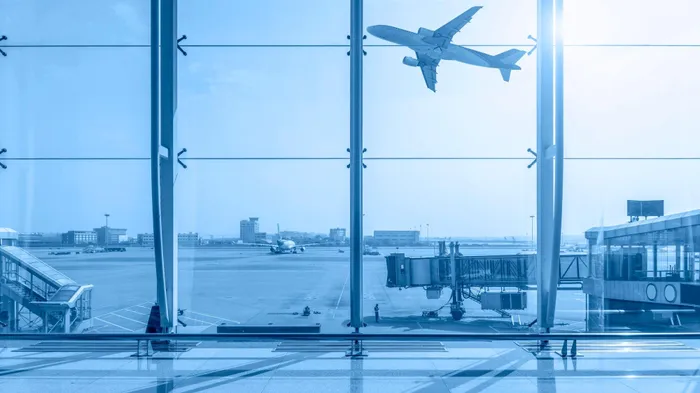Airlines’ climate goals at risk as support for fossil fuels grows
Global carbon emissions

The aviation industry is under increasing pressure to reduce its environmental impact. Air travel accounts for about 2.5 to 3 percent of global carbon emissions, and while airlines are investing in cleaner technology, their main hope lies in using more Sustainable Aviation Fuel (SAF).
Image: Freepik
The airline industry's plan to reach net-zero carbon emissions by 2050 is under threat due to a global shift towards fossil fuel-friendly policies, according to a major aviation group.
Speaking at an annual industry meeting in India on Sunday, the International Air Transport Association (IATA) warned that climate progress could slow down significantly. Marie Owens Thomsen, IATA’s top sustainability official, pointed to leaders like U.S. President Donald Trump, whose policies promote oil and gas over renewable energy.
“The return of leaders who support fossil fuels and roll back climate regulations is clearly a setback,” said Owens Thomsen. “It puts the 2050 goal in danger.”
Even so, she believes the industry will continue to move towards greener practices, just more slowly. “It’s not going to stop us, but it will delay progress,” she added.
The aviation industry is under increasing pressure to reduce its environmental impact. Air travel accounts for about 2.5 to 3 percent of global carbon emissions, and while airlines are investing in cleaner technology, their main hope lies in using more Sustainable Aviation Fuel (SAF).
SAF is a type of fuel made from renewable sources like used cooking oil and animal fats. It emits significantly less carbon than traditional jet fuel, but it comes at a steep cost—three to four times more expensive than conventional fuel.
Efforts are being made to increase SAF use. In the European Union, airlines are now required to include at least two percent SAF in their fuel mix. That number is set to rise to six percent by 2030 and 70 percent by 2050.
Still, current production levels are far below what’s needed. IATA estimates that global SAF production will reach 2.5 billion litres in 2025 — double last year’s output, but only about 0.7 percent of what the industry uses in total.
President Trump’s administration, now in its second term, has shifted away from supporting clean aviation fuels. Under former President Joe Biden, U.S. policies had offered strong incentives for SAF development through tax credits and government funding. Trump’s renewed focus on oil and gas marks a reversal, creating uncertainty for airlines and fuel producers alike.
The UN’s International Civil Aviation Organization (ICAO) set the 2050 net-zero target, with broad global support. But if political winds continue to shift away from climate action, experts fear the goal may no longer be realistic.
IATA says it will continue pushing for progress, even in a tougher political environment. “This is a long-term challenge,” said Director General Willie Walsh. “We can’t afford to slow down — but right now, that’s exactly what’s happening.”
